People started talking about renaming a village in the Vynogradiv region back in 2022, because mass decommunization in Ukraine had already begun.
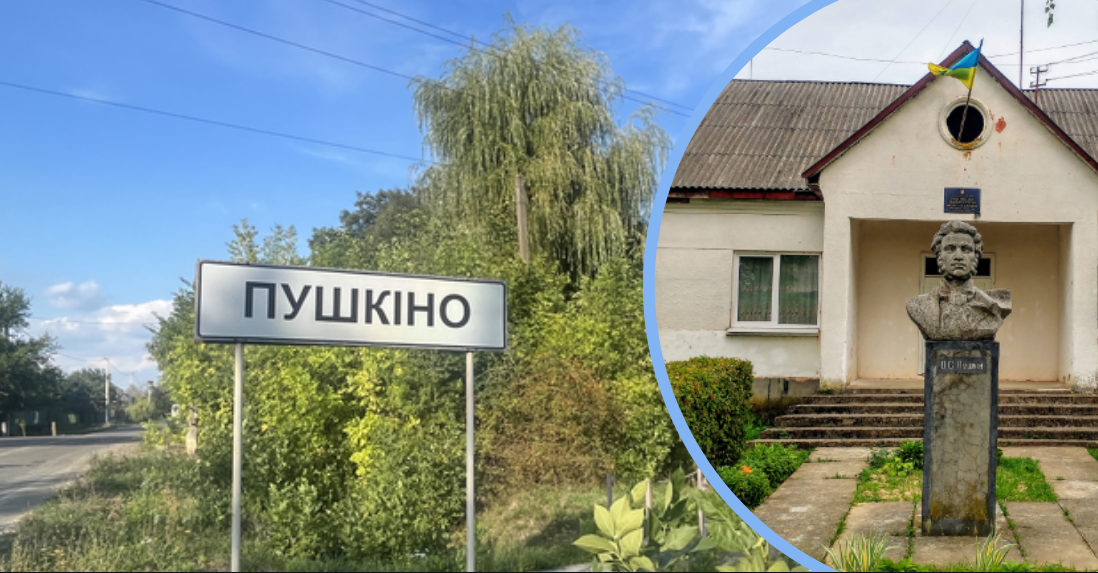
In Transcarpathia, there is a village with a strange name – Pushkino. Actually, Pushkino, not Pushkin. Although the locals still call it Pushkinovo, with an emphasis on the penultimate syllable.
The online publication Prozak.info wrote about the village with an unusual name.
In Ukraine, total de-Russification continues and streets that were once named after Russians are being renamed en masse. Across Ukraine, nearly 600 streets have been named after the Russian poet Alexander Pushkin. And here is a whole village. By the way, it is the only one in Ukraine.
So how did it happen that in the extreme west of Ukraine, and even surrounded by villages inhabited mainly by ethnic Hungarians, a village named after a Russian poet appeared?
As it turned out, back in the period when our region was part of Czechoslovakia, the inhabitants of several mountain villages of the present-day Mizhhirya region (mainly Synevyr and Toruń) decided that they should move to the lowlands, where the climate is not so harsh and the land is more fertile.
So in 1927, a dozen families bought some land from the landowner Leo Springer from the village of Verbovets. The highlanders took a loan from one of the banks, paid the landlord money and began to engage in agriculture. A total of 36 families lived in the hamlet. It was not a separate village, it was simply considered part of the village of Verbovets.
In the village of Verbovets, this settlement of the highlanders was called a colony. And then the settlement was unofficially called Novy Verbovets. The inhabitants of the village of Verbovets, who were Hungarians, called this settlement Rusky Verbovets. At that time, the local Hungarians of our region called Ruthenians Russians. The village grew, and in 1932 the Czechoslovak authorities allocated some more land for a church and a cemetery to the settlers. By that time, almost 130 people already lived here.
The question arose of granting the settlement the status of a separate settlement, and, accordingly, it had to be called somehow. According to the stories of old-timers, one of the first settlers, Ivan Sidey, who at one time was working in the United States, proposed to name the village in honor of the Russian poet Pushkin. At the same time, he heard about Pushkin in the United States.
Sidey persuaded his fellow villagers that Pushkin was a smart man and it was not a shame to name the village after him. The villagers agreed. In Prešov, bells were cast for the church of the settlement and on these bells is engraved: "These bells are cast for St. John. St. Peter and Paul Church in the village of Pushkinovo — Rus' Verbovets in 1931 in Prešov." And this is despite the fact that the official name of the village has not yet existed.
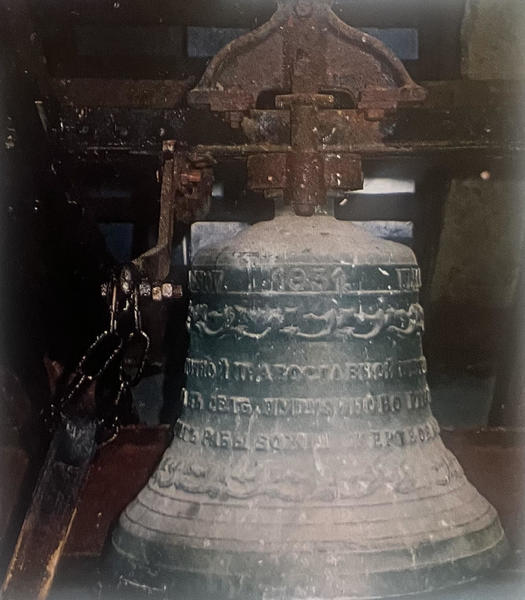
And only in 1937 the peasants gathered again and asked the authorities to give the name to the village of Pushkinovo. Moreover, that year marked the 100th anniversary of Pushkin's death. But a year later, our region became part of Hungary and the Hungarian authorities gave the village the name Uj Verboc - New Verbovets. Local residents continued to call the village Pushkinovo.
After Stalin annexed Transcarpathia to the USSR after the war, the village officially began to be called Pushkino, but the locals continued to call it Pushkinovo.
In 1977, a bust of Pushkin was erected near the local school. This happened a year before the bust of Pushkin appeared on the embankment in Uzhgorod. At the same time, the Pushkin Museum was opened at the school and a street in the village was named in honor of Pushkin.
By the way, in 2004 the village was renamed. After the Orange Revolution, someone decided that the end of the village was some Russian and the village was renamed Pushkin. But this name did not take root for a long time, and now the name Pushkino is still on official documents, and on the signs. And with all this, the locals still called their village Pushkinovo.
And now, after the invasion of Russian troops into the Ukraine, mass de-Russification has begun. We came to the village to find out how de-russification is going on and what will happen to the name of the village. The head of the village, Hanna Fedorivna Kut, said that in April, teachers at a local school asked her to rename Pushkin and Gagarin streets in the village.
There is no problem with this, it can be resolved at the executive committee. People in the village have an absolutely negative attitude towards everything Russian. According to her, there was not even a single official decision to demolish the bust of Pushkin in front of the school. On the night of April 26, local activists simply demolished Pushkin's head, and only one pedestal remained standing there.
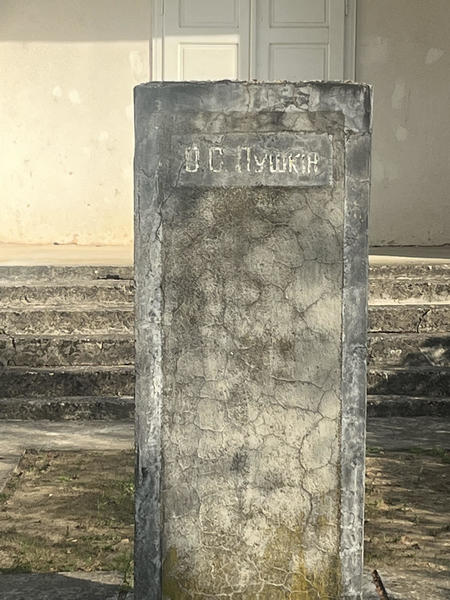
But there was a problem with the renaming of the village. It's not just about bureaucratic hurdles. To rename a village, decisions of the session of local councils are needed. An appeal from the deputies of the village, then the decision of the Vylotska AH, to which the village belongs, then the decision of the Zakarpattia Oblast Council and the corresponding appeal to the Verkhovna Rada.
Any renaming entails further problems with documentation, and there will also be costs for the production of signs and plates.
But that's not even the point. "So far, there is no unanimous opinion on how to rename the village. Many villagers are against the renaming. Some of our villagers call me from abroad and ask me not to rename it, because there may be problems with documents.
In addition, there is no unanimity in the new name of the village. There were proposals to return the name Novyi Verbovets. Some suggested naming the village Petropavlovo, because the local church is named after Saints Peter and Paul. And many villagers say that the village should be called Pushkinovo, and not Pushkino, as it is now," says Hanna Kut.
As of September 2022, there was not a single sign with the name of the village council at the entrance to the village council building.
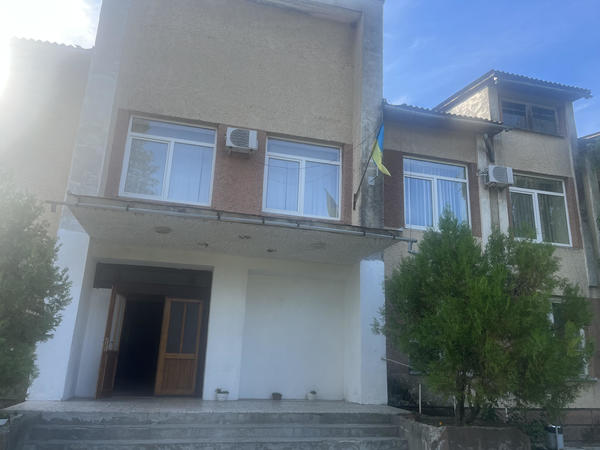
It was only on the side of the building, where the entrance to the outpatient clinic is, and there on the sign it is indicated that this is the outpatient clinic of the village of Pushkino. The locals with whom we spoke say that the village should be called Pushkinovo and there is simply no need to put meaning into it, that it is from the surname of the Russian poet, but from the word pushka. By the way, one resident even told the version of the name of the village, saying that someone was shooting from a cannon with someone.
In a word, everything is a bit paradoxical – an exclusively Ukrainian village with a high spirit of Ukrainian patriotism of its inhabitants, which is surrounded mostly by villages with a Hungarian population, continues to bear the name of the Russian poet.
By the way, there is another monument in the village – a monument to fellow villagers who died in the Second World War. And the village has already received a claim that this monument has elements of Sovietism, so the monument needs to be demolished.
The corresponding appeal demanding the demolition of the monument from a resident of Uzhhorod with the surname Biley was registered in the Vylotska AH and, accordingly, was sent to the village council for consideration. But the village believes that the monument erected to the villagers who died in the war and on which their names are engraved should not be demolished.
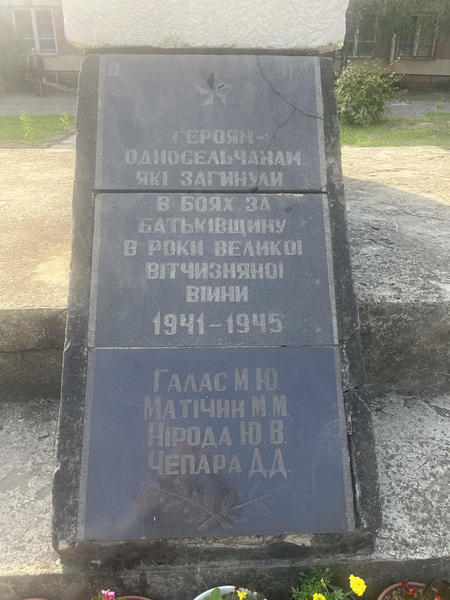
Do you want to keep abreast of the latest events from the region and beyond? Subscribe to the Telegram channel "Voice of the Carpathians" and be the first to receive the latest information every day!
Читайте також:
- Пенсійний сюрприз: суддям підвищили пенсії до 100 тисяч грн
- Нашестя змій на Закарпатті: небезпека чатує в будинках та на городах
- Найстрашніше попереду: чим слід уже робити запаси жителям Закарпаття на найближчий період?
- На Закарпатті вимикатимуть світло не тільки по графіку: де ще плануються додаткові відключення (ПЕРЕЛІК)
- Поділитись:
- Twitter(X)
- Telegram
- Viber
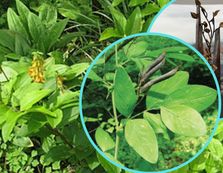
Трансільванське диво, що має таємничу історію і рі...
До Дня міста у Мукачеві створили нову ту...
04.06.2024 09:58 1046 0 Culture

Готель Брістоль 1 червня провів свято до Дня захис...
Парк-готель «Брістоль» провів свято з на...
04.06.2024 16:22 1062 0 Culture

Знайдена загадкова гробниця: вчені розкривають тає...
Гробниця з серцем Сулеймана I виявлена п...
08.06.2024 12:02 361 0 Culture

В Ужгороді пройде обласний чемпіонат з шахів
Запрошують всіх шахових талантів відзна...
08.06.2024 13:28 81 0 Culture

ЇЇ бережуть "як зіницю ока": на аукціон виставили ...
Аукціонний дім Christie's виставив на пр...
11.06.2024 11:52 175 0 Culture

Вражаюча знахідка із минулого: що за цінний об'єк...
У мережі Фейсбук з'явилась унікальна сві...
12.06.2024 21:09 5653 0 Culture
